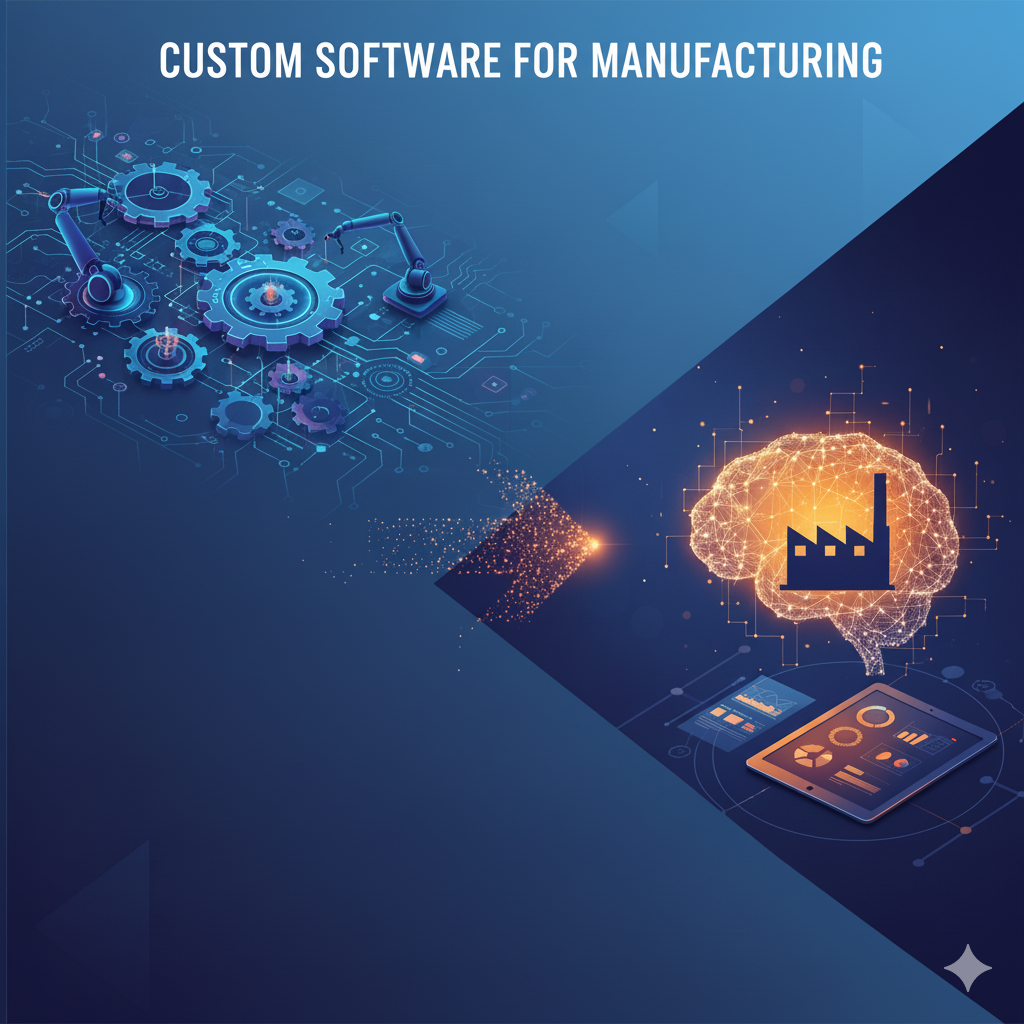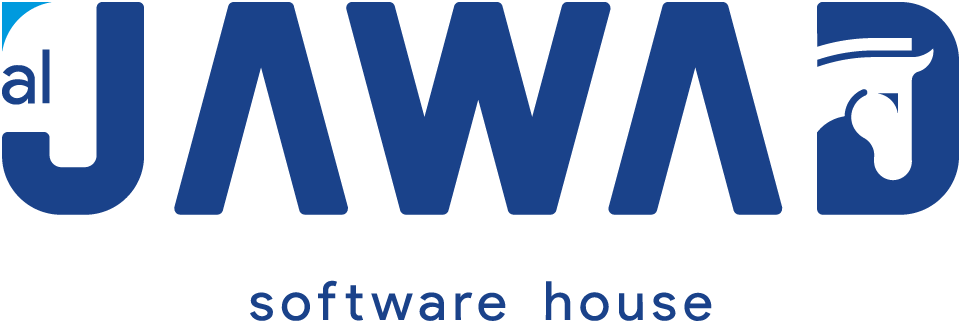In the modern manufacturing landscape, speed, accuracy, and efficiency define success. Every delay, manual process, or disconnected system affects production output and profit margins. That’s where custom software for manufacturing comes in — providing a digital foundation that automates workflows, streamlines production, and enables smarter decision-making.
By integrating automation, manufacturers can shift from reactive operations to proactive, data-driven systems that ensure precision and performance across the production floor.

1. Why Manufacturers Need Custom Software
Many factories still rely on a mix of manual processes, spreadsheets, and outdated software tools. This often leads to duplicated efforts, inconsistent reporting, and delayed communication between departments. Custom manufacturing software solves this by creating a centralized, automated system tailored to a company’s unique workflow.
Unlike generic ERP systems, custom software adapts to the exact structure of the business — whether it’s managing raw materials, tracking production cycles, or monitoring machine performance in real time. This flexibility allows manufacturers to implement automation exactly where it’s needed most.
2. The Role of Automation in Manufacturing
Automation has evolved from simple machinery control to full-scale digital transformation. Manufacturing automation software integrates IoT devices, sensors, and data analytics tools to keep operations running smoothly with minimal human intervention.
For example:
- IoT Integration: Sensors track equipment status and send alerts before breakdowns occur.
- Data Analytics: Real-time data helps supervisors identify bottlenecks and optimize workflows.
- Robotic Process Automation (RPA): Routine administrative tasks such as inventory updates or quality checks are performed automatically.
The result is a connected ecosystem where machines, data, and people work together efficiently.
3. Key Benefits of Custom Software for Manufacturing
a. Streamlined Operations
Automation eliminates repetitive tasks and integrates multiple systems into one unified platform. Production teams can view live dashboards showing inventory levels, machine uptime, and order status in real time.
b. Increased Productivity and Output
By reducing manual input, workers focus on higher-value activities such as quality control and innovation. This leads to shorter production cycles and improved throughput.
c. Predictive Maintenance
Through machine monitoring, software can predict when equipment is likely to fail and schedule maintenance proactively. This minimizes downtime and prevents costly repairs.
d. Cost and Resource Optimization
Custom solutions help allocate resources efficiently — from labor scheduling to energy usage — ensuring maximum ROI on manufacturing investments.
e. Data-Driven Decision Making
With centralized data analytics, business leaders can make informed decisions based on accurate, real-time insights rather than guesswork.
4. Integrating Custom Software Into Your Manufacturing Workflow
Adopting custom software for manufacturing requires a clear strategy. Here’s a practical roadmap:
- Assess Current Challenges
Identify areas where manual processes or inefficiencies exist — production scheduling, maintenance, or inventory management. - Define Automation Goals
Set measurable objectives, such as reducing production time by 20% or cutting downtime by half. - Collaborate with a Software Development Partner
Choose an experienced partner (like Adept Business Solutions) that understands manufacturing workflows and can design solutions aligned with your operations. - Pilot and Scale
Begin with a pilot module, test results, gather feedback, and then expand the automation system plant-wide. - Ongoing Support and Optimization
Continuous monitoring ensures the software evolves with your business and adapts to new technologies like AI and machine learning.
5. Real-World Impact of Automation
A medium-sized manufacturing firm that implemented a custom ERP module integrated with IoT sensors achieved the following:
- 30% reduction in machine downtime
- 25% faster production turnaround
- Real-time visibility into inventory and logistics
- Improved quality control and reduced waste
These measurable gains show how manufacturing automation software directly impacts productivity and profitability.
6. The Future of Manufacturing with Automation
The future of manufacturing lies in smart factories — facilities powered by custom software, AI, and robotics that self-optimize for efficiency. As technologies like digital twins and edge computing mature, manufacturers can simulate operations, forecast issues, and make instant adjustments without human delay.
By adopting automation now, businesses gain a long-term advantage in scalability, compliance, and cost efficiency. Those who delay digital transformation risk being outpaced by competitors who can deliver faster, smarter, and cheaper.
Conclusion
Custom software for manufacturing isn’t just a tech upgrade — it’s a strategic investment in productivity, accuracy, and growth. Automation bridges the gap between traditional manufacturing and Industry 4.0, helping businesses operate at peak efficiency.
Whether you’re running a small production unit or managing a multi-facility enterprise, tailor-made software gives you the visibility, control, and flexibility to stay ahead in an ever-evolving industrial world.
If your goal is to boost performance and streamline manufacturing through technology, now is the time to explore custom automation software built for your specific needs.
Erp
Adept’s ERP Software empowers UAE-based businesses to unify operations, enhance resource planning, and drive efficiency across departments. Built for the region’s dynamic business landscape, our ERP solution offers end-to-end visibility and control over finance, inventory, HR, procurement, and production—ideal for startups, SMEs, and enterprise-level organizations.
✓ All-in-one platform for finance, inventory, HR, and operations
✓ Real-time data insights for smarter, faster decision-making
✓ VAT-compliant accounting tailored for UAE regulations
✓ Modular architecture to scale with your business growth
✓ Seamless integration with CRM, eCommerce, and logistics tools
✓ Local implementation, training, and UAE-based ERP consulting & support
adept Business Solutions
Adept Business Solutions offers comprehensive ERP solutions to businesses of all sizes, leveraging the power of Odoo to transform operations. Their services include consultation, implementation, customization, training, and ongoing support. They specialize in optimizing workflows for industries such as retail, manufacturing, and professional services, ensuring seamless integration with existing systems.

OAKLAND - odooERP.ae
OAKLAND provides a wide range of Odoo services, including system customization, deployment, and support. They focus on delivering comprehensive ERP solutions that address the unique needs of SMEs and enterprises. Their solutions cover key areas such as finance, inventory management, CRM, and human resources.

Al Jawad Software House
With over 14 years of experience, Al Jawad Software House is a trusted provider of Odoo solutions. They specialize in delivering customized ERP implementations that enhance productivity and efficiency across diverse industries. Their team provides ongoing support to ensure long-term client success.
The Future of Business Management
with Adept ERP
At Adept Business Solutions, we specialize in providing cutting-edge ERP and accounting software solutions designed to meet the unique needs of businesses in Dubai, UAE. With over 15 years of industry expertise, we are dedicated to empowering organizations with innovative tools and personalized support for sustainable success.
- Tailored Solutions for Your Business Needs
- Expert Guidance and Support
- Enhanced Operational Efficiency
BoOK YOUR DEMO !
To book your Product Demo please complete the form:



